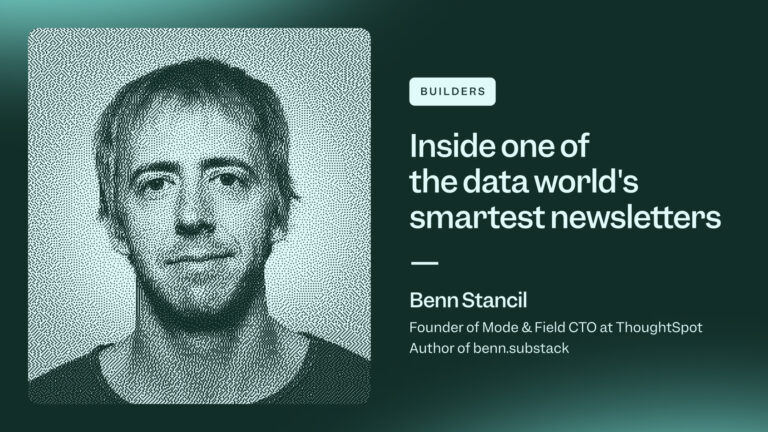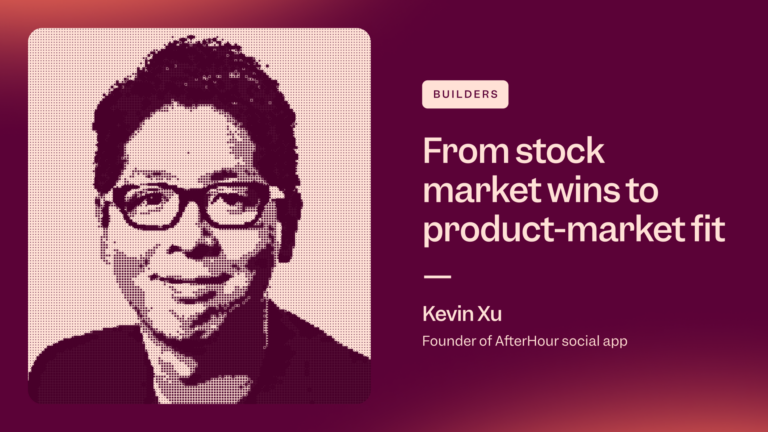How to get into Y Combinator (It’s not how smart you are)

The interviews had finished the day before. Convening in Mountain View, Y Combinator’s partners had anointed a new class. But the fun wasn’t over just yet. Indeed, the fever around the prestigious startup incubator is a year-round affair.
Two of the incubator’s hopeful applicants had extended their West Coast sojourn an extra day. Although they would return to Boston shortly (and if things went well, fly back again for YC’s summer batch), first they wanted to see partner Jared Friedman, formerly co-founder and CTO of Scribd, speak at Mixpanel’s Office Hours.
Jared, for his part, was polishing off a busy week. Six days of applicant interviews had preceded the night’s presentation, which in turn would look back through eight years of application data. It was a retrospective on the brief history of YC batches.
A more fatigued group of applicants might’ve spent the bonus night getting blitzed at the Patio in Palo Alto. But maybe (just maybe) if the Bostonians attended the talk, “What Y Combinator’s Data Says,” they’d know how startups are admitted into the selective program. And if they failed to make the cut? At least they would be more knowledgeable for the next batch. After all, 40% of accepted YC startups have applied before.
The data itself revealed some pretty cool things about the tech industry’s recent history. But the audience was, understandably, looking toward the future. They wanted to know how to get into Y Combinator, how their company might become a statistic on the screen. Almost every hand shot up when Jared polled the audience for founders. Then, after the panel, groupies glommed onto him with post-show questions and pitches.
You might’ve thought he was what so many techies claim to be on their LinkedIn profiles: A rock star. A guru.
Standing beside Suhail Doshi (Mixpanel CEO and YC alumnus), I watched the crush of would-be founders. Was a future Airbnb, Mixpanel, or Dropbox in the mix of those crowding around Jared?
Suhail was confidently reclined on one of the office’s deceptively comfortable step pillows. In the seven years since being an eager YC applicant, he’d “made it.” Still, he wasn’t sure how to quantify this happening. To that end, a friend had called Suhail recently, seeking tips for YC, and he wasn’t sure what to say. The selection process could’ve changed. What did he have to report but Mixpanel’s own journey? After Jared graciously listened to the last groupie, Suhail asked what had changed.
“The application questions have barely changed in in 11 years,” Jared said. It seems counterintuitive. Given what Jared’s slides say about eight of those 11 years, change has been the one constant. Somehow, YC has found a method for picking winners, in spite of discontinuity.
During his talk, Jared reality-checked the audience.
“I’m sure you read a lot in the press about how the world is ending and investors aren’t funding companies anymore and all these unicorns are going to lose their horns or whatever,” he said. “These trends are real to a certain extent. They matter for later stage companies that have to plan financing strategies. At the stage that Y Combinator funds companies like pre-series A, our advice doesn’t change, because we always encourage companies to be conservative and rely on investors as little as possible.”
And while the advice has changed little, your strategy as a founder might have to.
Sometimes, “trending” is a bad thing
The topic for Jared’s talk that night was the application itself. Like he mentioned, it hasn’t changed much since 2005. As a result, the application has recorded some insights about the industry that investors and TechCrunch reporters might have missed in the dizzying parallax of it all.
https://www.youtube.com/watch?v=uH7rfWe9ijo
The data depicts an applicant pool that is either setting or following trends. Jared later published many of these graphs in his “Startup Zeitgeist” on The Macro.
Most of the data is based on the frequency of certain word mentions, like “Artificial Intelligence” or “Tinder.” It reveals thousands of fledgling startups, trying to guess at the right company to build.
Which is the bleeding edge technology to conquer?
Do I integrate with the most popular apps or try to ruthlessly crush them?
Part of why the application stands still is because so much of what it observes is in flux. It’d be difficult to tailor decisions to any year. But, being an employee of an analytics company, I had to ask: Could you harness all of this noise? Reviewing the past eight years, could startups make intelligent decisions about the next eight?
There are certainly venture capitalists who think this way, concentrating their bullish energy on a subset of products. YC doesn’t operate this way, and it believes founders absolutely shouldn’t.
“There are a lot of investors that came up with this really exciting thesis about how some particular trend was going to take over the world,” Jared said. “Then they were wrong, and they lost a lot of money. I actually think that Y Combinator would make worse decisions if it spent a lot of time thinking about what the trends in the future would be and trying to invest in companies doing those trends.”
Although the YC application is a document of changing times, it’s trying to detect a couple of everlasting qualities.
Social network for dog lovers
Memorizing the colorful plots of Jared’s deck might be a futile exercise. Data by mentions can tell you that 4% of recent applicants perceive Facebook as a threat. Even if that intel is fun, it won’t take you to the bank. But then Jared threw up a separate kind of data set: acceptance, by the numbers.
There’s a mood prevailing in the world of funding.
Founders Fund is lamenting, “We wanted flying cars, instead we got 140 characters.” Marc Andreessen attends the “church of technology, afire to reorder life as we know it.” One gets the feeling that a preponderance of prayer hand emojis isn’t the worship to which Andreessen refers, and there is a general feeling amongst venture capital’s finest, and YC itself, that mobile apps might generate revenue, while adversely promoting incrementalism. We’re dreaming smaller these days.
YC’s numbers back up this funding philosophy. Reviewing the acceptance data, you can compare the popularity of certain product categories to their acceptance rate at YC.
Part of this is a numbers game. If a higher percent of startups apply as “community,” a lower percentage of community startups will get interviews, assuming YC’s interest across categories is relatively constant. Still, popularity and the acceptance rate aren’t inversely proportional. If you’re trying to land an interview with YC, there might be something to sinking your time into hardware or biotech.
“We accept a much smaller percentage of [entertainment and community] companies,” Jared said. “I thought a lot about the underlying reason for this trend. I see it as our bias for big, ambitious ideas and a lot of the entertainment and community ideas—which is, I don’t know, a social network for dog lovers?—are just not really big, ambitious ideas. For every company that’s trying to cure cancer, we get 17 to-do list apps and social networks for X and Y.”
Obviously, the overheads and R&D of a hardware or biotech company can be prohibitive. Starting a company in your dorm room is much more difficult if lab work is required. Due diligence is difficult, even more so with the industry’s breakneck rate of change.
But the founders YC is looking for aren’t all mobile developers on the dropout track. Only 15% of YC founders are 20 or under, while 18% are 40+. The average age of a YC founder is 30. There’s still time to be ambitious. And with an acceptance rate that hovers around 3%, you’ll want to stack probability highly in your favor. Picking an ambitious idea is one way of doing so.
“We’re looking for companies that are doing things that are really unique and different and might very well be worth zero,” Jared said. “It’s okay if most of the companies we fund end up being worth zero, as long as some people are trying some crazy experiments that might pay off.”
Crazy experiments are, naturally, not for the faint of heart. That’s why YC looks for another quality in its applications.
Get determined
“Paul Graham’s original thesis was that the best startup founders would be really, really smart people, so we funded a lot of PhDs and other people who looked very smart on paper,” Jared said. “A couple years later he realized that thesis was wrong. We reduced our bias towards PhDs and began funding people who were high school dropouts and from all kinds of backgrounds who really, really wanted to start a company. The number one criteria of success in the startup founder is determination.”
Luckily, overconfidence in tech isn’t in short supply. Many early-stage startups look around their humble digs and assess themselves as really, really wanting to succeed. To level-set this, Jared provided an anecdote of true determination.
“Wakie was founded by two guys from Armenia,” he said. “Not your typical startup founder background from Silicon Valley. The level of hardship they had to go through to get this company working? They told us some pretty crazy stories about starting a company in Armenia.”
In the prehistory of Wakie, Hrachik Adjamian and Tatul Ajamyan had launched an app called Budist. They traveled to the U.S. with Budist, only to encounter a rather dire problem: People didn’t like the app. For such a simple diagnosis, it’s an incredibly difficult problem to have. So, the founders returned to Armenia and began working on what would became Wakie, a conversation app that allows you to pick a topic and then dial up a complete stranger somewhere in the world.
To cut costs in the meantime, Hrachik and Tatul shut down Budist, which had been doing all right in Russia, but wasn’t growing the way they wanted it to. This seemed like a minor setback. As soon as Apple approved Wakie, they would be in business.
It took Apple nine months to approve Wakie.
Jared recounted the shitshow that ensued: “They had shut down the last app so they didn’t have an app. Their current app wasn’t live, so they had zero users. They had a whole bunch of investors who were really unhappy about this situation and their team. But they just kept going. Even though they had no idea if Apple would ever approve it. That showed some real toughness.”
Whether Wakie will soar up-and-to-the-right or putter down toward the x-axis, there’s no data to say. But Jared and his team felt certain they’d made a smart investment.
“You just look for really talented people who seem really passionate and you invest in them. That seems to work really well. I’m going to keep doing that and I think that it’s going to continue to work. I’m optimistic.”
This optimism accords some other key factors. It has to. Selecting startups purely on idea ambition or founder determination doesn’t promise a 100% successful rate more than any other metric. And, like most Valley phenomena, YC’s portfolio follows a power law: It earns most of its ROI from a smattering of companies.
Not incidentally, portfolio value is only a fraction of what YC wants.
The network value
One of the reasons it was so difficult wresting Jared from the groupies is because his theses about success aren’t easy fixes to implement. If starting a company were as simple as picking a trend, the room might’ve cleared out faster.
But the would-be founders had a lot of questions. And follow-up questions. Followed by some more follow-up questions. Followed by a not so subtle business card slide. Through it all, Jared was patient and gracious.
Afterward, chatting with Suhail, they slipped into talking shop. Despite missing each other’s YC batches by three years, they had met before and spoke with a clubbiness more recognizable in college alumni than fund buddies. Jared quizzed him: Who were your favorite speakers from YC’s weekly dinners?
At first, Suhail pshawed the question. Some part of him assumed it was no more than a polite pretense. But then Jared insisted; he genuinely was curious.
And this went on for a while, them swapping notes and shooting the Valley breeze. It seemed significant that while the waves of YC hopefuls had quizzed Jared on fixing up their products, two successful alums were trading notes on who had inspired them. The network effect of YC gets a lot of lip service, but on full display, it’s a legitimate force.
Buying into ambition and determination, YC may be attaining something more valuable than a stake in one uncertain company. More than portfolio value, it’s building a kind of network value, for both founders and itself.
For instance, YC alumni screen the first few waves of applications, denying entry with a “No” or granting a partner’s review with a “Maybe.” In an age of unpaid internships, this arrives as a really inspired move, outsourcing the application slushpile to hi-tech’s brightest. But there’s something in it for everyone. YC gets multiple perspectives. Alums get a sneak peek at who’s up-and-coming and have a choice in shaping which technologies are prioritized.
The total effect is an ever-growing group of alumni committed to empowering each other, which is more correction-resistant than a few flailing unicorns. For an undetermined entrepreneur or an unambitious idea, one company is a single point of failure. For a YC founder, there will be life after exit. So, don’t just bring value to the portfolio. Bring value to the network.*
*But definitely fill out your application with a super clear explanation of what your company literally does. Jared was pretty clear about his incubator’s distaste for marketing speak.
You probably find this disappointing
Yep. You probably find this answer disappointing. Determination and ambition—these values are squishy and hard to quantify. Then again, $120k in cash ought to require some diligence. In a time of rampant discontinuity, YC is looking for players with a strong sense of continuity.
Jared’s data on trends is a red herring, a fact he disclaimed upfront. It’s noise, rather than actionable data, on how to get into Y Combinator. Some founders won’t grasp this, only ever branding themselves as Snapchat for Dads. Others will ignore it, as one typically does with red herrings. But given YC’s other criteria, founders would do well to pay close attention to these graphs and react against them.
Instead of highly contested ground, why not pursue the industries and spaces people avoid out of pessimism? To call on tech’s favorite told-you-soer, observe Elon Musk, privatizing space exploration and monetizing the electric car. Or consider Max Levchin, whose response to being laughed at by the banks was to prepare his consumer finance company for the last laugh.
Ambitious ideas have painfully long-term time horizons. Determined founders outlast their initial ideas through several pivots. If you’re watching Product Hunt, waiting for a fast-elevating ground floor to get in on, your entrepreneurial brain is moving at a different speed than YC’s.
Trends change, hustle remains. Sell your product in the clearest terms possible. But also sell yourself as the person who can innovate beyond it.



